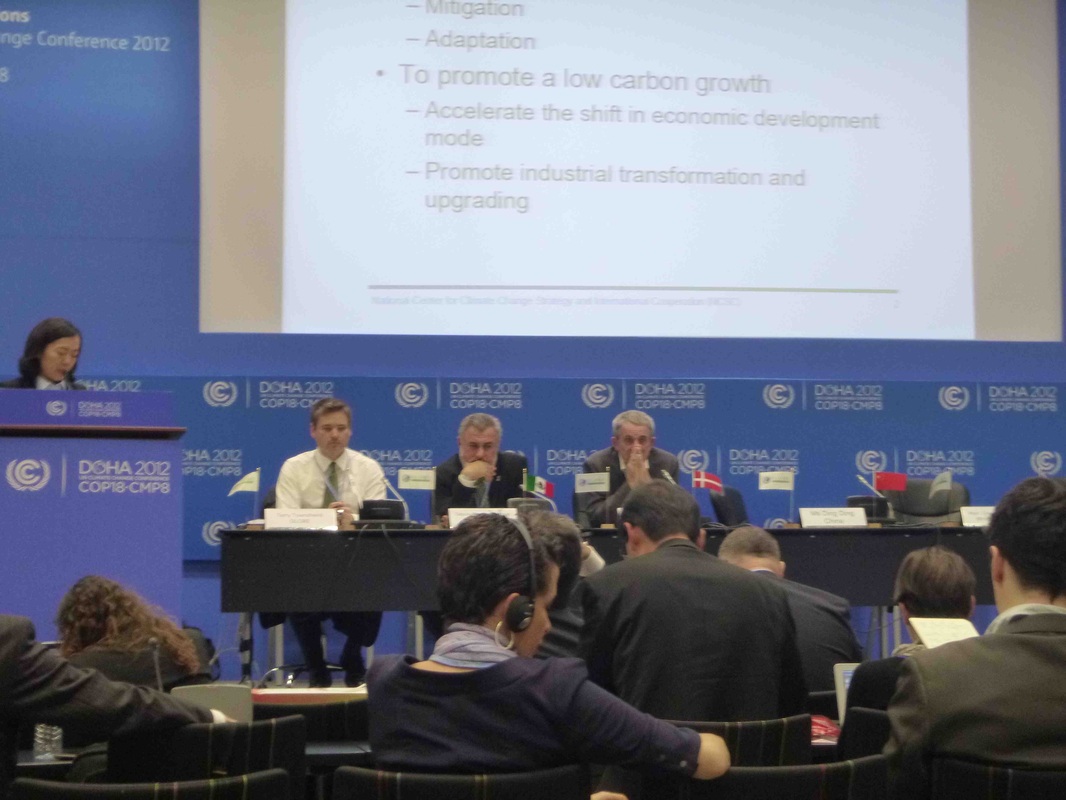
While the majority of the debate has shifted from whether or not climate change by humans is possible to how to prevent climate change, a major policy debate still remains. Should governments regulate greenhouse gas emissions and require more environmentally friendly industries or should the market be left to regulate itself to allow the general population to request greener products? Each have their own pros and cons as a strategy to prevent anthropogenic climate change.
For example, many detractors of the national climate change bill strategy have pointed to the general lack of effectiveness and low efficiency of large centralized governments including many national U.S. departments that are currently under increasing scrutiny during our recession and impending fiscal cliff. On the other hand, allowing the markets to self-correct has also been argued to be too slow or impractical as the cheapest ways of producing energy (in terms of money) are the dirtiest and release the most greenhouse gases, which will not allow for a quick energy transformation.
One of the events I went to today was focused on providing case studies for Mexico, Denmark, and China, which all have made great strides in either drafting (China) or signing national legislation (Denmark and Mexico). Denmark has been a key leader in proposing and agreeing on actual goals for renewable energy. For example, their commitment to utilize 100% renewable energy sources by 2050 is an excellent idea, but they are also creating and meeting milestones through green energy technology and becoming more efficient as a society. Mexico recently passed a comprehensive climate change bill as China is currently seeking to draft its own.
With the Waxman-Markey climate change bill currently dead in the water, the United States is not currently making progress for a comprehensive bill, but is making incremental and encouraging progress in several key areas. One interesting aspect is the regulation the EPA has successfully implemented on miles per gallon restrictions. While there was some initial claims that these restrictions would kill the US auto market, it may be responsible for its reemergence as a viable international industry. If you take a look at Ford, it immediately starting allowing its economic model to evolve even the anticipation of potential regulations has recently instituted many
green initiatives. (Check out some of the cars in the 2013 Ford lineup if you don’t believe me). In fact, the newly released EPA restrictions calls for an average of 54.5 mpg by 2025, which would save the consumer $8000 in gasoline costs over the lifetime of a newly purchased car, which helps to drive consumers to buy new cars.
While many would argue that this is merely driven by consumer demand, the anticipation of potential regulations is a large factor at play as well. If we look at the case study of Denmark, they set very strict goals for greenhouse gas emissions and are leading the charge to be powered by 100% renewable energy by 2050. Many US states are also adopting their own measures, such as California, which has its own comprehensive climate bill. Arguing that a climate change bill would kill the US economy is flawed as it would only ruin unhealthy businesses that are unwilling to adapt. In fact, as shown by the EPA mpg restrictions, a comprehensive climate change bill could help the overall economy by providing more advanced alternatives.
Another initiative directed by the US government was to double the renewable energy output, which has already been accomplished in large part due to the new wind energy initiative that not only creates renewable energy, but does so by utilizing over 70% of American made parts. Two new nuclear plants are being built in Georgia as well. In fact, the development of these new energy sectors leads to the creation of hundreds of thousands of jobs.
Nuclear power alone creates nearly 500 jobs per 1000 MW capacity of energy output, which is more than all of the sectors.
In Obama’s speech after the 2012 election, he said (transcript available
here):
We want our kids to grow up in a country where they have access to the best schools and the best teachers a country that lives up to its legacy as the global leader in technology and discovery and innovation with all of the good jobs and new businesses that follow.
We want our children to live in an America that isn’t burdened by debt, that isn’t weakened up by inequality, that isn’t threatened by the destructive power of a warming planet.
-President Barack Obama
All of these things can be accomplished by the anticipation of climate legislation as well as the binding legally commitment that will spur the development of the new, sustainable US economy. Without the legally binding commitment, progress will slow. Innovation of new products and the increased efficiency called for in this bill will not only help pave the way for a cleaner globe, but also will help lead to a global deal with the United States leading the way.


 RSS Feed
RSS Feed